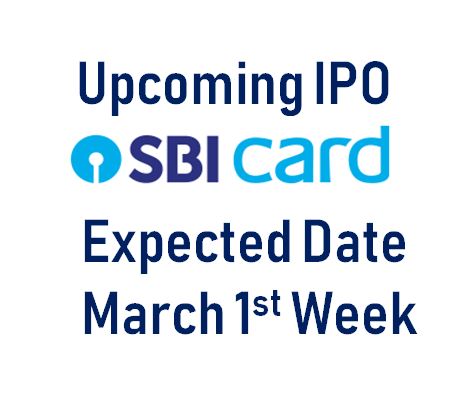SBI Card IPO - Eligibility & Expected Date

Instead of selling the enterprise or taking on additional partners, the company can decide to list it at a stock exchange. Listing on a stock exchange is done through an initial public offering. An initial public offering refers to the first time when a company sells its share to the public. There are various benefits that the company seeks to get when they decide to issue an IPO.
Benefits of issuing IPO
It is a wise decision sometimes to seek investment from the public who might be willing to value the company more generously than the venture capitalists who are not ready to give fair value. Further, once a company is listed on a stock, the public image of an enterprise goes up eventually. Banks are also more willing to grant loans for a listed company. Also, It is much easier for the company to carry out mergers and acquisitions when listed on a stock exchange. The process becomes much relatively simpler and valuations are market-driven. Listing of a company on a stock exchange gives an opportunity for entrepreneurs to liquidate a part of their holdings.
Let us know in detail about the recent announcement of launching SBI cards Initial Public Offering made by SBI
SBI IPO
SBI Cards and Payment Services, the credit card unit of India’s Largest Bank SBi, is likely to launch the Initial Public Offer in the month of March. It has received a go-ahead from the market regulator Securities and Exchange Board of India (SEBI)which granted in-principal approval to the IPO of SBI Cards and Payment Services recently.
SBI Cards & Payments Services Limited was launched by the SBI and GE Capital. State Bank of India and The Carlyle Group acquired GE Capital’s stake in the company. SBI cards are registered as a systematically important non-deposit taking NBFC. State Bank of India held a 60% share in SBI Cards & Payment Services Limited (SBICPSL). As a part of the IPO process, SBI will make a partial exit from SBI Cards and Payment Services. As of now, SBI owns 74% shares in the credit card unit whereas Carlyle Group holds 26% through CA Rover Holdings, which is a subsidiary of Carlyle Group
SBI and Carlyle will reduce their stakes by 4% and 10% respectively. The credit card unit of the SBI has planned to raise Rs 9,600 crore through this Initial Public Offering. The IPO is likely to be priced in a band of Rs 690-700 per share
Currently, SBI Cards with 18% market share is the second largest after HDC which has 27% market share. The company expects the number of credit cards to increase at an annual rate of 25% per year as per the draft prospectus. The IPO involves offer for sale for promoters to exit and fresh issue funds to augment capital base.
SBI Cards IPO Strength and Weaknesses
SBI cards being the second-largest credit card issuer in India, it possesses diversified customer acquisition capabilities. The SBI cards being backed by SBI which holds an important place in industry expertise, advanced risk management, and data analytics capabilities and a demonstrated track record of growth and profitability. Besides being a modern and scalable technology infrastructure, SBI is equipped with a professional management team and supported by a strong brand and pre-eminent Promoters.
However, SBI credit cards might face struggle from other credit card issuers and payment solutions providers seeing the prevalent competition and volatility in the market. Also, the question of whether the company will be successful in implementing its growth strategy remains
Who all are eligible to apply?
Individual shareholders of SBI are eligible to apply under the retail investment up to Rs 2 lakh as well as shareholder category where investment can be to Rs 2 lakh under the SBI shareholders reservation quota. Shares of worth Rs 900 crore are reserved for SBI shareholders. Also, In case an SBI shareholder is also an SBI employee, she is also eligible to apply in the category of employees of investment up to Rs 5 lakh
Rating firms CRISIL and ICRA have given AAA and A1+ ratings to SBI cards. Besides being the first IPO of 2020, the share sale will mark the largest-ever public market exit for a PE firm in India.
Published Date-18/02/2020
Like Our Page To Get Blogs & Market Updates



